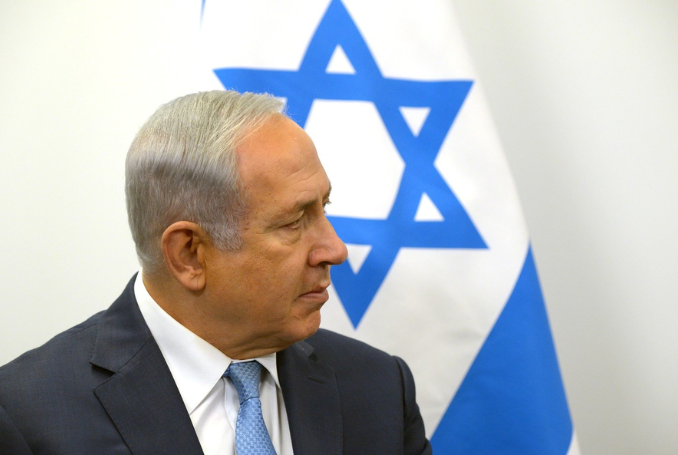
Israeli Prime Minister Benjamin Netanyahu has dispatched a delegation to Doha to discuss the Gaza ceasefire, though its mandate remains limited, drawing criticism from opposition leaders.
Israeli Prime Minister Benjamin Netanyahu announced on Saturday evening that he is sending a delegation to Doha to negotiate the next phase of the Gaza ceasefire agreement, while Israeli opposition leader Yair Lapid called for the delegation to be granted full authority to finalize the deal.
A statement from Netanyahu’s office confirmed that following a new exchange of Israeli prisoners in Gaza for Palestinian prisoners on Saturday, he “ordered a delegation to be sent” to Qatar. Netanyahu, who is set to return from the United States on Sunday, plans to convene a “security cabinet meeting” on the matter.
In fresh statements, Netanyahu emphasized that “President Trump completely agreed with me that we will do everything to bring back all the detainees, but there will be no Hamas presence.” He reiterated, “We will do everything we can to bring back all the detainees and ensure their safety, and these are instructions to the delegation to convey the message to the mediators.”
After being released, one of the Israeli captives said: “Our government is failing, and I thank the Al-Qassam Brigades for keeping me safe.” pic.twitter.com/KAXlKvrLnR
— The Palestine Chronicle (@PalestineChron) February 8, 2025
Israeli media reported that the army is set to withdraw from the Netzarim axis at 6 am on Sunday in accordance with the agreement.
According to the Israeli Walla news website, officials stated that the delegation traveling to Doha has not been given a mandate to negotiate the second phase of the deal. The visit is described as preliminary and is not expected to yield significant progress on the next phase of negotiations.
The website, citing unnamed officials, suggested that the purpose of the visit is to demonstrate goodwill toward the US administration, which had pressured Israel to send a delegation to Qatar.
The official Israeli Broadcasting Authority confirmed that the delegation, which includes the coordinator for prisoners’ affairs and the deputy head of the internal security service (Shabak), is not authorized to discuss the second phase of the agreement. Instead, its mandate is limited to discussions on extending the first phase of the deal. Netanyahu reportedly seeks to prolong this phase “for as long as possible.”
Members of Al-Qassam Brigades are deployed in Deir Al-Balah in the central Gaza Strip to organize the release of three Israeli detainees as part of a prisoner exchange deal between the resistance and Israel. pic.twitter.com/HAa4xeavaY
— The Palestine Chronicle (@PalestineChron) February 8, 2025
Israeli opposition leader Yair Lapid insisted that the delegation should have full authorization to finalize the deal without dividing it into phases or requiring additional payments.
Former Defense Minister Yoav Gallant also criticized the government, asserting that it had not done everything possible to secure the return of the prisoners, according to Yedioth Ahronoth.
Benny Gantz, head of the Israeli State Camp party, reiterated that “from the very beginning, we have said that recovering the kidnapped is a war goal that takes priority over anything else, because the kidnapped do not have time.”
Meanwhile, the American network Fox News quoted Israel’s Ambassador to the United Nations, Gilad Erdan, as saying that negotiations will resume in Doha. “Our goals are very clear,” Erdan stated, adding, “We must wait a few weeks” to determine whether war will resume or negotiations will continue.
Erdan insisted that “there is no future for the Israeli people as long as Hamas is in power” and expressed shock over how Hamas had released the three hostages.
Negotiations on implementing the second phase of the ceasefire agreement were originally scheduled to begin last Monday, on the 16th day of the truce. However, Haaretz quoted a member of Netanyahu’s delegation to Washington as saying that the prime minister would not commit to the second phase without first eliminating Hamas.
Israeli detainees Eli Sharabi, Or Levy, and Ohad Ben Ami have been handed over to the Red Cross.
@Middle_East_Spectator pic.twitter.com/K2LuQsaTPt
— The Palestine Chronicle (@PalestineChron) February 8, 2025
Axios reported that Israel’s security cabinet will meet on Monday after Netanyahu returns from Washington to discuss the second-phase negotiations.
As part of the arrangements for the first phase of the ceasefire, Yedioth Ahronoth reported that the Israeli occupation army will fully withdraw from the Netzarim axis overnight.
Under the agreement, the army will dismantle all military installations it established along the axis, which separates northern Gaza from its central and southern regions.
The Netzarim axis, stretching from Kibbutz Be’eri in the Gaza envelope to the Mediterranean Sea, spans approximately seven kilometers in length and five kilometers in width at its northern and southern ends. It was designed to fragment Gaza, isolating the north from the central and southern areas, while facilitating the movement of Israeli occupation forces from the Gaza envelope to the Mediterranean coastline.
At the same time, the Israeli army announced that its three divisions operating in Gaza have repositioned to defensive positions to bolster security in the Gaza envelope and the western Negev.
(PC, AJA)
